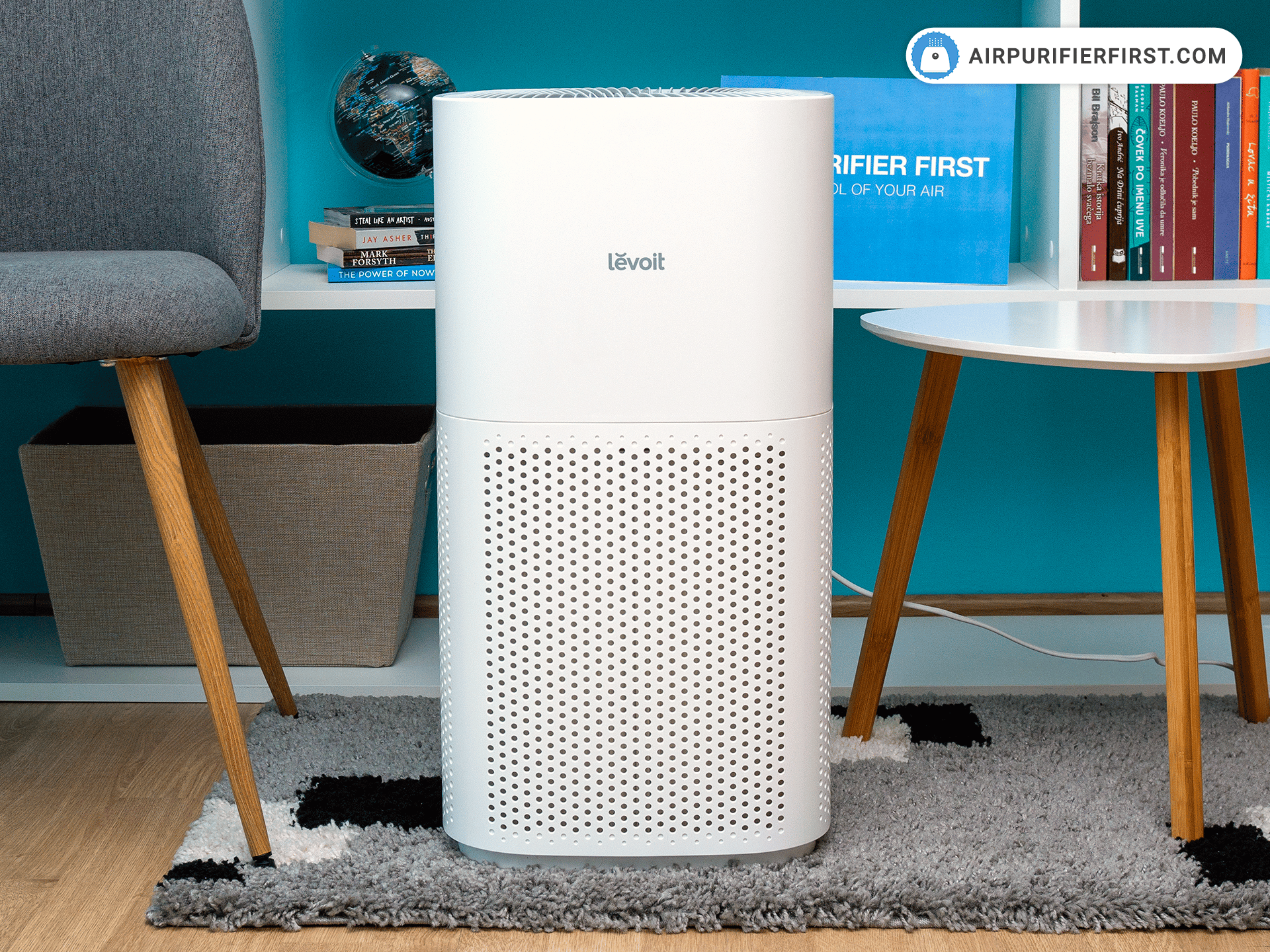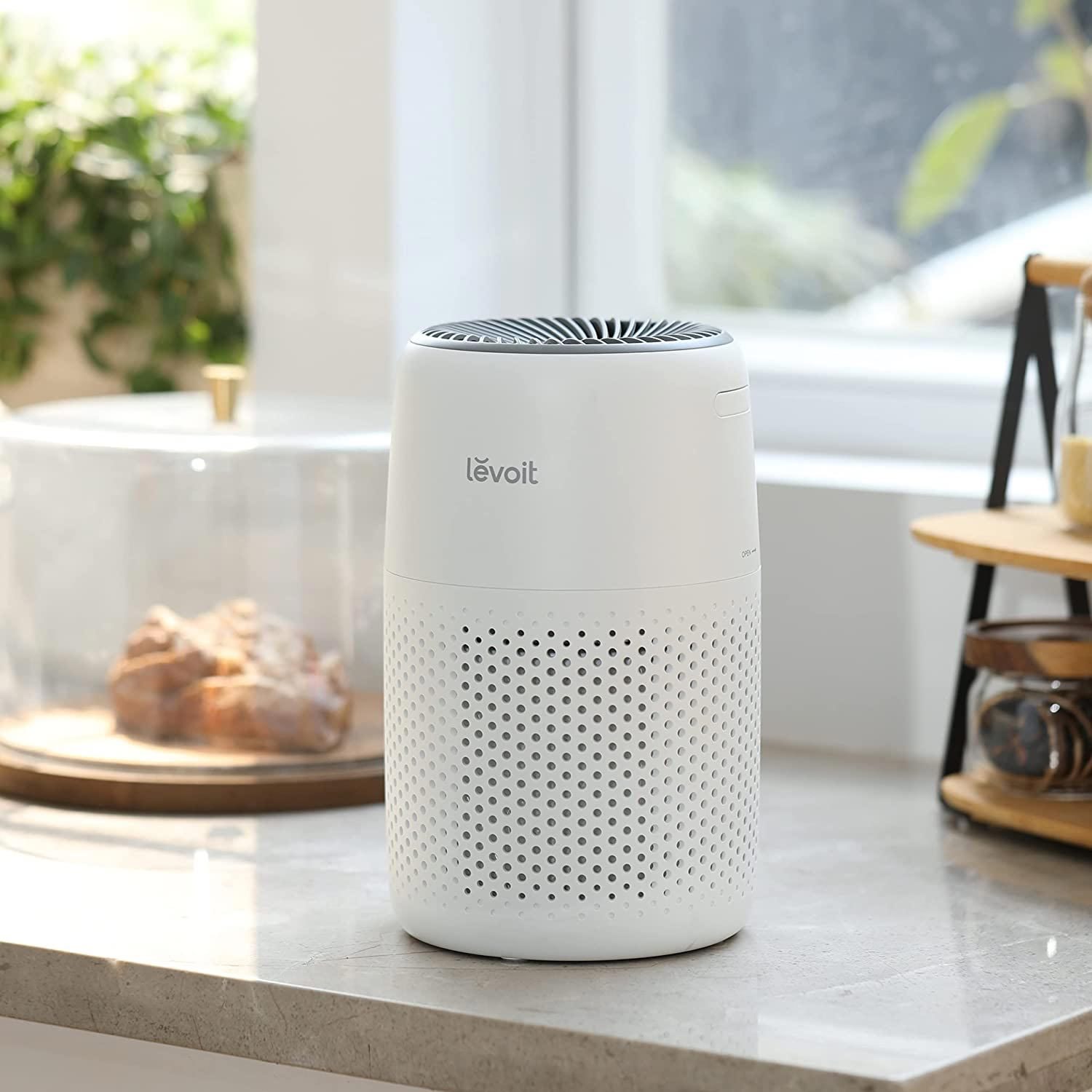What is the Best Air Purifier for a Basement
Finding the best air purifier for a basement can be tricky. Basements often have unique air quality issues.
Basements are prone to dampness, mold, and musty odors. These issues can affect the air quality and your health. An air purifier can help, but not all are suitable for basements. You need one that handles mold, dust, and dampness well.
This blog will guide you in choosing the best air purifier for your basement. We’ll explore the key features to consider and why they matter. By the end, you’ll know what to look for and how to make an informed choice. Let’s dive in and improve your basement air quality.

Credit: www.airpurifierfirst.com
Introduction To Basement Air Quality
Basements often have poor air quality. They are usually damp, dark, and cool. This makes them prone to mold, mildew, and other allergens. Choosing the best air purifier for a basement can greatly improve the air you breathe.
Importance Of Clean Air
Clean air is essential for health. Poor air quality can cause respiratory issues. It can also trigger allergies. Clean air helps you breathe easier. It also promotes better sleep. This is especially important in basements where air can be stale.
Common Air Quality Issues
Basements can have many air quality issues. Mold and mildew are common. These thrive in damp conditions. Dust and allergens can also build up. Poor ventilation makes it hard to get fresh air. This can make the space feel stuffy and unpleasant.
Key Features To Look For
Choosing the best air purifier for a basement can be challenging. Basements often have unique air quality issues. Here are key features to consider. They will help you find an effective air purifier.
Filtration System
The filtration system is crucial. Look for HEPA filters. They remove 99.97% of particles. This includes dust, pollen, and mold spores. Some air purifiers also have activated carbon filters. These help eliminate odors and VOCs. A UV-C light feature can kill bacteria and viruses.
Coverage Area
Check the coverage area of the air purifier. It should match the size of your basement. Measure your basement in square feet. Then, find an air purifier that can handle that size. This ensures effective air cleaning. A purifier with a larger coverage area is better for bigger basements.
Top Air Purifier Picks
Choosing the best air purifier for a basement can be a challenge. Basements often have higher humidity and lower air circulation. This can lead to problems like mold and musty odors. To tackle these issues, a good air purifier is essential. Below are some top picks to consider.
Brand Comparisons
Comparing brands helps you find the right air purifier. One popular brand is Dyson. Dyson air purifiers are known for their sleek design and powerful filters. Another top brand is Honeywell. Honeywell offers reliable and affordable options. Blueair is also worth mentioning. Blueair models are energy-efficient and quiet.
User Reviews
User reviews give real insights into how well an air purifier works. Many users praise the Dyson models for their strong performance. They mention reduced dust and odor in their basements. Honeywell users often highlight the ease of use. They appreciate the simple controls and effective filtration. Blueair receives high marks for its silent operation. Users note it runs quietly, making it ideal for a basement.

Credit: www.familyhandyman.com
Hepa Air Purifiers
HEPA air purifiers are a popular choice for basements. They use a high-efficiency particulate air (HEPA) filter. This filter captures tiny particles and allergens in the air. These purifiers help improve air quality. They are highly effective in removing dust, mold spores, and pet dander.
Benefits
HEPA air purifiers offer many benefits for basement use.
- Allergen Removal: Captures particles as small as 0.3 microns.
- Improved Air Quality: Reduces airborne pollutants and odors.
- Health Benefits: Helps with asthma and allergy symptoms.
- Easy Maintenance: Filters are simple to replace.
Best Models
| Model | Key Features | Price Range |
|---|---|---|
| Honeywell HPA300 | True HEPA filter, 465 sq. ft. coverage, 4 air cleaning levels | $200 – $250 |
| Levoit LV-H132 | Compact design, 3-stage filtration, night light feature | $90 – $110 |
| Winix 5500-2 | PlasmaWave technology, washable AOC carbon filter, smart sensors | $150 – $200 |
| Dyson Pure Cool TP01 | HEPA and activated carbon filters, oscillation, remote control | $300 – $350 |
Choosing the best HEPA air purifier depends on your needs. Consider the size of your basement. Look at the key features. Compare the price ranges. Finding the right model will ensure clean and fresh air in your basement.
Activated Carbon Filters
Activated carbon filters are essential for basement air purifiers. They excel at removing odors, gases, and harmful chemicals from the air. These filters contain tiny pores that trap contaminants, improving air quality.
Advantages
Activated carbon filters offer numerous benefits for basement use.
- Odor Removal: They eliminate unpleasant smells, such as mold and mildew.
- Gas Absorption: They absorb harmful gases like radon and VOCs.
- Allergen Reduction: They trap dust, pet dander, and other allergens.
- Improved Air Quality: Cleaner air promotes better health and comfort.
Top Choices
Several air purifiers with activated carbon filters stand out for basement use.
| Model | Features | Price Range |
|---|---|---|
| Alen BreatheSmart | Removes odors, dust, and allergens. Quiet operation. | $$$ |
| Honeywell HPA300 | High CADR rating, efficient in large spaces. | $$ |
| Levoit LV-PUR131 | Smart features, energy-efficient, compact design. | $ |
Choosing the right air purifier depends on your specific needs. Consider the size of your basement and the types of contaminants present.
Uv-c Light Purifiers
Basements often suffer from poor air quality due to limited ventilation. Using a UV-C light purifier can help improve the air quality in your basement. These purifiers use ultraviolet light to kill bacteria, viruses, and other harmful microorganisms. They are efficient and effective, making them a popular choice for basement air purification.
How They Work
UV-C light purifiers use ultraviolet light to clean the air. The UV-C light damages the DNA of bacteria, viruses, and other pathogens. This stops them from reproducing and renders them harmless. The purifier draws air into the unit, exposes it to UV-C light, and releases clean air back into the room. Some models also include HEPA filters to trap dust and allergens.
Recommended Products
| Product Name | Features | Price |
|---|---|---|
| GermGuardian AC4825 |
|
$99.99 |
| PureZone 3-in-1 |
|
$129.99 |
| SilverOnyx Air Purifier |
|
$179.99 |
Energy Efficiency
Choosing the best air purifier for your basement involves considering many factors. Among these, energy efficiency is crucial. An energy-efficient air purifier not only reduces your electricity bills but also contributes to a greener environment. Let’s delve into some key aspects of energy efficiency.
Energy Star Ratings
One of the first things to check is the Energy Star rating. Products with this label meet specific energy efficiency criteria set by the Environmental Protection Agency (EPA). These air purifiers use less energy to deliver high performance. This means you get cleaner air without a spike in your electricity bill.
You can find Energy Star ratings on the product packaging or the manufacturer’s website. Consider choosing a model with a high Energy Star rating for the best results.
Cost Savings
Using an energy-efficient air purifier can lead to significant cost savings. Here’s a quick comparison table to illustrate the potential savings:
| Air Purifier Type | Energy Usage (kWh/year) | Annual Cost ($) |
|---|---|---|
| Standard | 500 | 60 |
| Energy Star Rated | 300 | 36 |
As shown, an Energy Star rated air purifier can save you around $24 annually. This may seem small, but it adds up over time. Plus, lower energy usage reduces your carbon footprint.
Here are some other benefits of energy-efficient air purifiers:
- Longer lifespan due to less strain on components
- Quieter operation
- Reduced maintenance costs
In summary, focusing on energy efficiency helps you save money and supports environmental sustainability. Make sure to consider these factors when selecting the best air purifier for your basement.
Maintenance And Longevity
Maintaining your air purifier is crucial for its effectiveness and longevity. A well-maintained purifier ensures clean air and a longer lifespan. Let’s explore how to keep your air purifier in top shape.
Filter Replacement
Filter replacement is vital for an air purifier’s performance. Most purifiers use HEPA filters, which need regular replacing.
- HEPA Filters: Change every 6-12 months.
- Activated Carbon Filters: Replace every 3-6 months.
- Pre-filters: Clean or replace every 30 days.
Keeping track of these schedules helps maintain clean air. Some purifiers have indicators that alert you when it’s time to replace the filter.
Product Durability
The durability of an air purifier affects its longevity. Choose models made with high-quality materials. Sturdy construction ensures the purifier withstands wear and tear.
| Material | Durability |
|---|---|
| Plastic | Moderate |
| Metal | High |
| Composite | Very High |
Choose a purifier with a robust build. Look for models with solid warranties. This indicates the manufacturer’s confidence in the product’s durability.
Regular cleaning also improves longevity. Dust and debris can clog the system, so clean the exterior and vents regularly.
Maintaining your air purifier involves regular filter replacement and ensuring product durability. These steps ensure the purifier lasts longer and performs effectively.

Credit: www.youtube.com
Conclusion
Choosing the best air purifier for your basement is essential. A good unit removes mold, dust, and bad odors. It improves air quality and keeps your space healthy. Consider your basement size and needs. Compare features and prices. Read reviews and user experiences.
Make an informed decision. Breathe easier and enjoy a cleaner, fresher basement.


